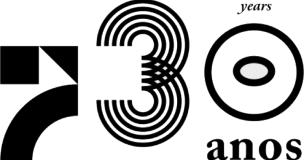- UC.PT
- /
- English Version
- /
- FFUC
- /
- About
- /
- Teaching History
Teaching History
| |
The University of Coimbra was the cradle of pharmaceutical education in Portugal. Since late XVI century, the Apothecary Course and the Pharmacy School, which later gave way to the Faculty of Farmacy, were focused on a practical training dimension but theoretical contents were gradually added to the training of apothecaries and pharmacists. This dual training dimension – scholar and practical - was kept until 1902.
The first Apothecary Course was essentially practical since the University would only intervene to evaluate the candidates’ skills through a final exam.
The Reforma Pombalina of 1772, guided by the experimental spirit, marked the first great change in the pharmaceutical training in Portugal. For the first time the pharmacists were trained at the University. The training consisted of two years of practical chemical procedures (carried out at the Chemist Laboratory) and another two years of practical pharmaceutical procedures (carried out at the Pharmaceutical Dispensary).
However, it was only in 1836 that theoretical oriented disciplines were included in the training of pharmacists. This was the year that marked the founding of the Pharmacy School at the University of Coimbra, which was attached to the Faculty of Medicine.
The educational reform implemented in 1902 unified the training of pharmacists and it was thus considered, for the first time, as high education.
In less than 20 years, Coimbra’s Pharmacy School became autonomous and went through similar reforms to the other two Pharmacy Schools in Lisbon and Porto.
In 1915, the Pharmacy School was granted the use of its own facilities (Casa dos Melos). In 1919, the Pharmacy School started to grant a Degree in Pharmacy, last step before establishing itself as a Faculty of Pharmacy in 1921.





